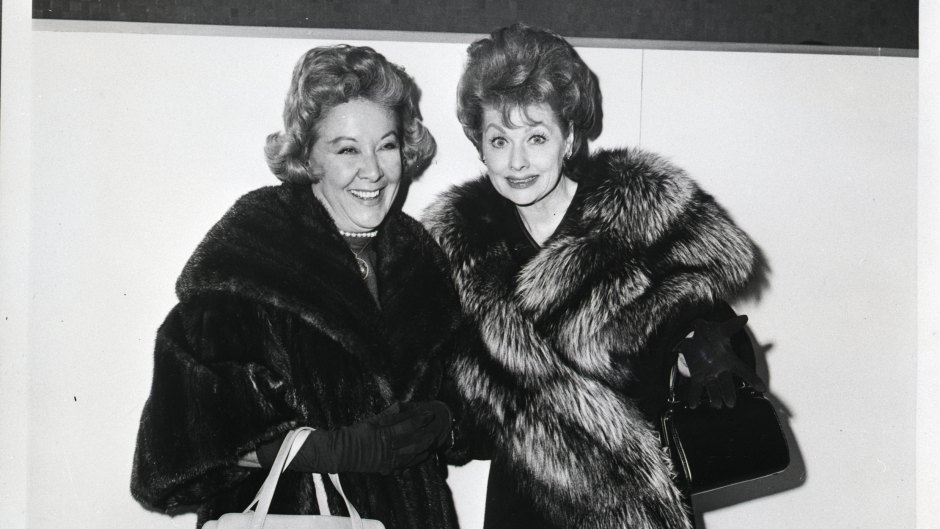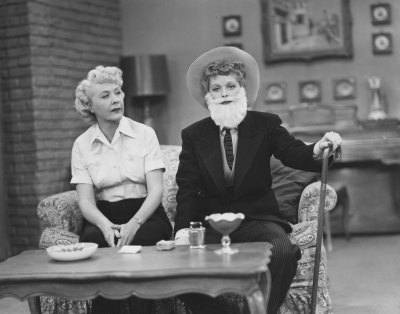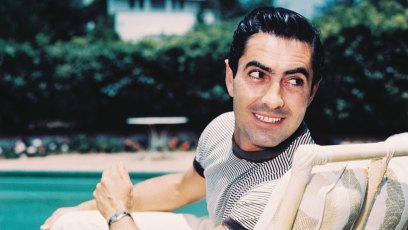
Getty Images
How I Love Lucy’s Vivian Vance and and Lucille Ball Remained Lifetime Friends: The Greatest Partners’
In a Chicago hotel room, actress Vivian Vance found herself shaking and crying for no reason at all. “To put it bluntly, I flipped,” she recalled about the start of her mental breakdown in 1945. “Every normal function of my body — heart, blood, pulse — roared in my ears. I was exhausted but I could not sleep. I was afraid to leave my room and afraid to stay in it. The walls grew closer.”
This Kansas-born beauty spent her girlhood yearning to perform, but her goals conflicted with her strict parents’ belief that respectable people did not become actors. Vivian persevered, even when mental illness threatened her life, and after years in theater joined the cast of I Love Lucy. But that wasn’t the end of her struggle. On the set, jealousy, a hostile work environment, and an abusive marriage challenged her ambition to make Ethel Mertz everyone’s favorite best friend.
Growing up, Vivian and her mother, Mae, clashed. “To Mama, I was a ‘bad girl,’” she wrote in her unpublished memoir. “I had a hang-up about showing my legs in public — Mama used to scream at me that showing my legs could drive men to sin. Whenever I heard four-letter words, I vomited.”
At 19, she escaped into a short-lived marriage and landed at a playhouse in New Mexico. “She got her start in Albuquerque,” former curator of the Albuquerque Museum, Deb Slaney, exclusively tells Closer. “She lived here between 1928 and 1930 and came back to do productions in the 1940s.”
Vivian also found her way to New York, where she paid her dues as a chorus girl but eventually starred alongside Danny Kaye and Eve Arden on Broadway. But even as she followed her bliss, Vivian felt haunted by her mother’s warnings and disapproval. “Once a man exposed himself to me on the New York subway, and I retched until I was sick,” she confessed. “I blamed myself, thinking: ‘He wouldn’t have done that unless I looked like a whore.’”

In her childhood, Vivian had witnessed several of her mother’s mental collapses. “[She said] that someday I’d have a nervous breakdown,” recalled Vivian, who lived with this fear for years. “Before I went anywhere, I always wrote my name and address on a piece of paper and put it in my handbag,” she said, “so someone would know who I was if I went totally crazy.”
After her mental crisis, Vivian regained her stability through therapy. “Analysis finally helped me,” said the actress, who would become an early advocate for psychiatry and a board member of the National Mental Health Association.
In 1950, Vivian was performing on stage at California’s La Jolla Playhouse when some special guests appeared in the audience. “They were Desi Arnaz, director Marc Daniels and Jess Oppenheimer, producer of I Love Lucy, then seeking to cast the part of Ethel Mertz. I was hired,” recalled Vivian.
But nobody had sought the approval of series star Lucille Ball, who expected Ethel to be played by a much older, frumpy actress. “Lucy fought to get her off the show,” says Frank Castelluccio, coauthor of The Other Side of Ethel Mertz. “She was from the old school that said you never have prettier people on the set.”
Vivian also drew the ire of William Frawley, who played her husband, Fred Mertz, when he overheard her make a comment about his age. He never forgave her and sought revenge by playing pranks and trying to startle Vivian with loud sudden noises. “She’s one of the finest girls to come out of Kansas,” William quipped, “But I often wish she’d go back there.”
A consummate professional and a team player who loved her work, Vivian kept quiet and proved her worth to the show. “We were both perfectionists,” recalled Lucille, who appreciated Vivian’s willingness to gain weight and change her appearance to play Ethel. She soon came to rely on Vivian’s keen judgment, too. “Lucy considered Vivian to be the best script doctor in town. If something in the script wasn’t working, those two ladies would put their heads together and figure it out,” Wanda Clark, Lucy’s former secretary, told Closer.
Vivian and William would never become best friends, but they developed professional respect in their working relationship. “Lucille always said while they were at work, if William ever needed something, he would ask Vivian first. If Vivian needed something, she would ask William,” says Michael Z. Stern, author of I Had a Ball: My Friendship With Lucille Ball. “They didn’t like each other, but they worked really well together, and it shows.”
There was one last obstacle. I Love Lucy made Vivian a household name, but it also made her third husband, actor Philip Ober, jealous and mean-spirited. “He was terrible,” Lucille said. “He used to beat her up. Loved to embarrass her. One day Viv came to work with a shiner. That did it. I think I said to her, ‘If you don’t divorce him, I will.’” Vivian finally walked out on him in 1959.
Vivian insisted that celebrity was never her goal. “I don’t want to be a star,” she said. “Most of the ones I know are too unhappy.” But thanks to her Emmy-winning role on I Love Lucy, she became beloved — and she eventually found personal happiness, too. Vivian married book editor John Dodds in 1961, and they stayed together until her passing in 1979. Lucille would also remain a lifelong friend. “No one could take the place of Vivian Vance in my life,” Lucille said. “She was the greatest partner anyone could ever have.”







































